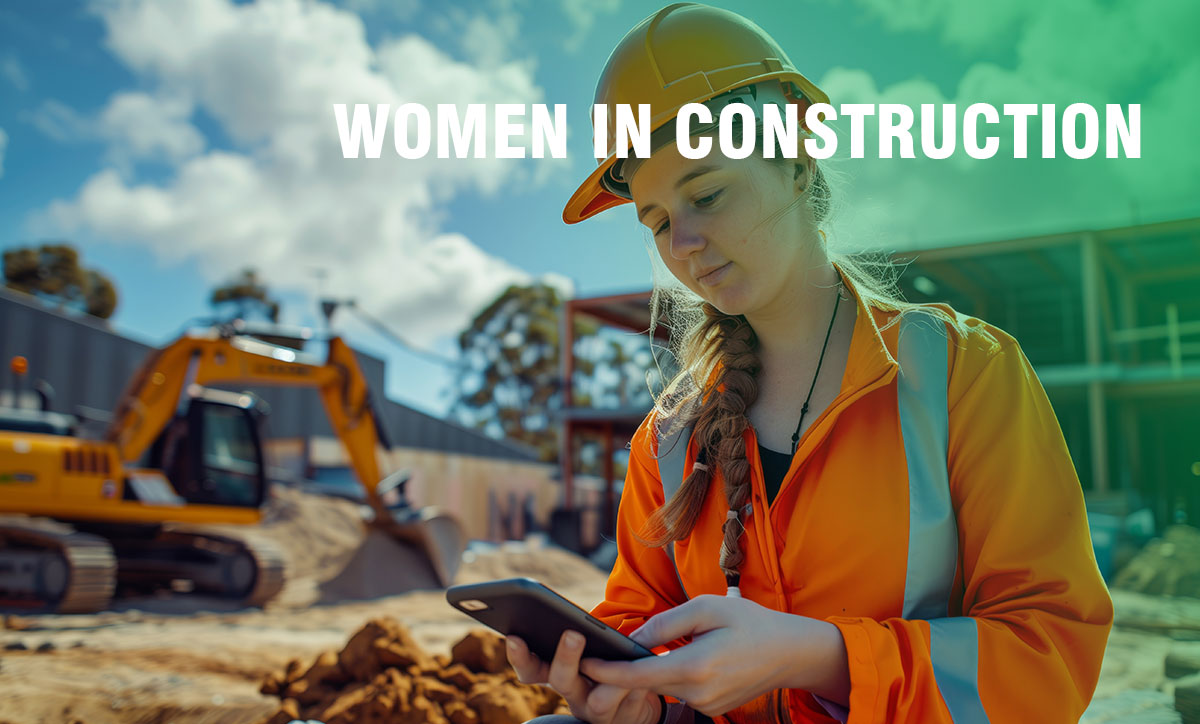
Empowering Women in Building and Construction: Addressing Challenges and Fostering Inclusivity
The building and construction industry has long been dominated by male professionals, but there is a growing recognition of the need for increased gender diversity in this field. In this article, we explore the challenges faced by women in building and construction, why greater representation is crucial, and how we can collectively work towards a more inclusive industry.
Challenges Faced by Women:
1. Underrepresentation:
Women are significantly underrepresented in the construction workforce, particularly in leadership and technical roles. This underrepresentation contributes to a lack of diversity of thought and perspective within the industry.
2. Gender Bias and Stereotypes:
Gender biases and stereotypes persist in the construction sector, affecting women's career progression. Preconceived notions about women's capabilities can create barriers to entry and advancement.
3. Workplace Culture:
The traditionally male-dominated culture of construction sites can be unwelcoming for women. In some cases, women may experience harassment or a lack of support in male-dominated work environments.
4. Limited Mentorship Opportunities:
Women in construction often face challenges in finding mentors and sponsors who can guide their career development. Limited mentorship opportunities can hinder professional growth.
Why We Need More Women:
1. Diversity of Perspectives:
A diverse workforce brings a variety of perspectives, ideas, and problem-solving approaches. Including women in building and construction enhances creativity and innovation within the industry.
2. Addressing the Skills Gap:
The industry is currently facing a skills shortage, and tapping into the full talent pool, including women, can help address this gap. Encouraging women to pursue careers in construction can contribute to a more skilled and resilient workforce.
3. Better Project Outcomes:
Research suggests that diverse teams lead to better project outcomes. Projects benefit from the input of individuals with different experiences and viewpoints, resulting in improved decision-making and problem-solving.
4. Economic Empowerment:
Empowering women in construction provides economic benefits by expanding the talent pool and contributing to women's financial independence. This, in turn, strengthens families and communities.
How We Can Help:
1. Promoting Education and Training:
Encourage girls and young women to explore careers in construction by promoting education and training programs that provide the necessary skills for the industry.
2. Creating Inclusive Work Environments:
Companies should actively work towards creating inclusive and supportive workplaces. This involves addressing gender biases, fostering a culture of respect, and implementing policies that promote diversity.
3. Mentorship and Networking Programs:
Establish mentorship and networking programs that connect women in construction with experienced professionals who can provide guidance and support throughout their careers.
4. Advocacy and Awareness Campaigns:
Raise awareness about the importance of gender diversity in construction through advocacy campaigns. Highlight the success stories of women in the industry to inspire future generations.
5. Policy Changes:
Advocate for and implement policies that promote gender equality in hiring, retention, and career advancement. This may include flexible work arrangements, parental leave policies, and diversity training.
6. Educate Industry Stakeholders:
Provide education and training to industry stakeholders, including employers, about the benefits of gender diversity. This can help dispel stereotypes and biases that may hinder the recruitment and advancement of women.
In conclusion, fostering gender diversity in building and construction is not only a matter of equity but a strategic imperative for the industry's success. By addressing challenges and actively promoting inclusivity, we can create an environment where women can thrive and contribute to the growth and innovation of the construction sector.
At Back to Basics we particularly understand the needs of women. Our founder, Susan Stephens has experienced first-hand the challenges women may face in embarking on a career in building and construction.
Call us on 1300 855 713 to see how our distance learning courses can help you gain the qualifications you need.